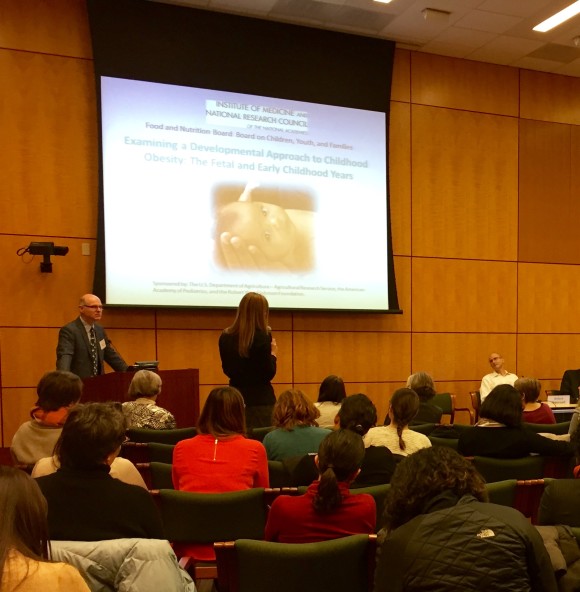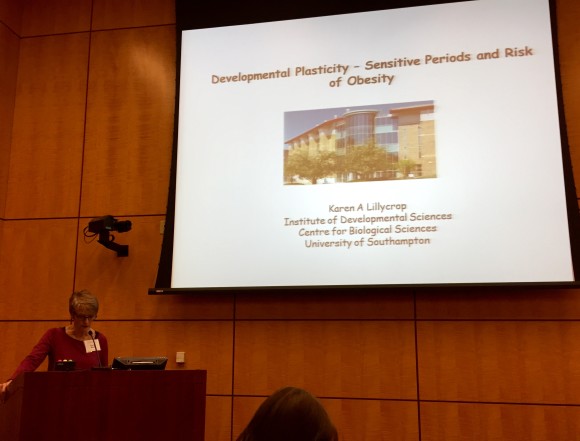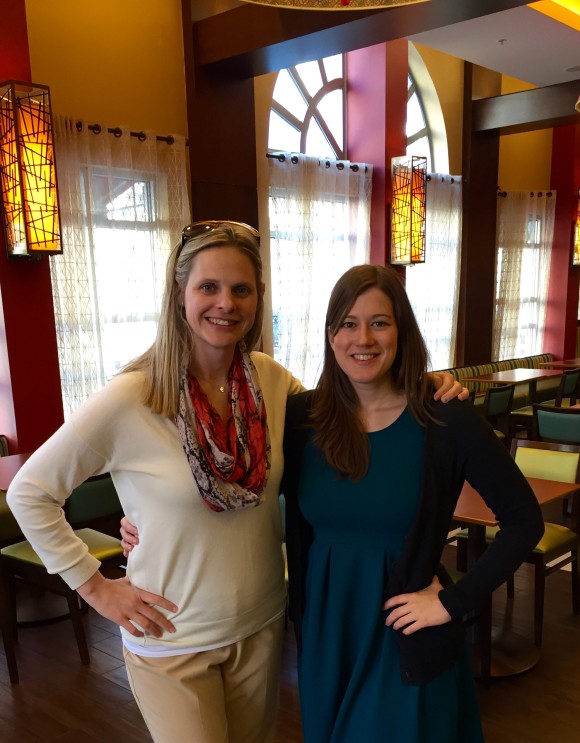 Several sessions at SRCD 2015 focused on the importance of parenting in children’s eating behavior. One session chaired by Shayla Holub (University of Texas at Dallas) focused on how feeding practices are just one part of the greater parent-child relationship which includes both parenting style and the attachment relationship between child and parent. The discussant for the session, Dara Musher-Eizenman (Bowling Green State University) emphasized the importance of understanding bi-directional effects in the parent-child feeding relationship. Research often focuses on how parenting affects children’s eating behavior and weight, but children can also affect their parents’ feeding behaviors.
Several sessions at SRCD 2015 focused on the importance of parenting in children’s eating behavior. One session chaired by Shayla Holub (University of Texas at Dallas) focused on how feeding practices are just one part of the greater parent-child relationship which includes both parenting style and the attachment relationship between child and parent. The discussant for the session, Dara Musher-Eizenman (Bowling Green State University) emphasized the importance of understanding bi-directional effects in the parent-child feeding relationship. Research often focuses on how parenting affects children’s eating behavior and weight, but children can also affect their parents’ feeding behaviors.
In an invited symposium titled, “Development of Food Preference and Obesity,” Julie Mennella (Monell Chemical Senses Center) and Jennifer Fisher(Temple University) described two views on how food preferences develop. First, Mennella took a strongly biological stance which emphasized the importance of early sensory experiences for the development of food preferences. Flavors that infants experience in the amniotic fluid and in their mothers’ milk can influence their later preferences. Biological responses to the basic tastes also affect how food preferences develop.
Second, Fisher emphasized the importance of eating experiences and the environment for the development of food preferences. Although she emphasized the importance of caregivers and parents for eating socialization, she also acknowledged the importance of the biological processes described by Mennella. Even though this was set up to be somewhat of a “nature vs. nurture” debate, both Mennella and Fisher agreed that both biology and environment are important for the development of food preferences.






